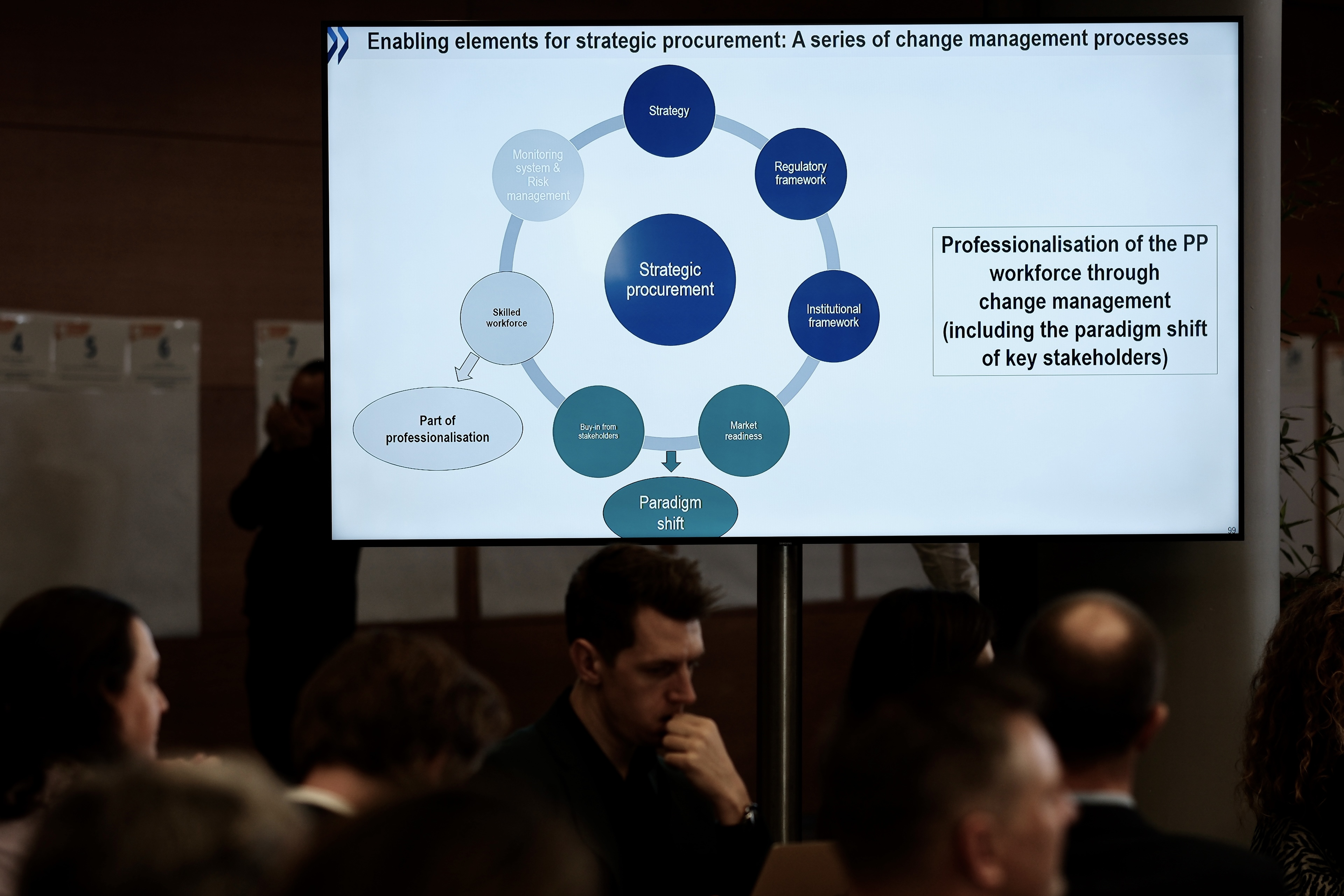WHAT ARE FOCUS GROUPS?
Focus Groups bring together participants who wish to collaborate on a specific sustainable procurement topic of common interest.
These could be broad topics such as market engagement or circular procurement, or could be sector specific topics such as effective procurement of organic school catering or energy efficient ICT.
HOW DO FOCUS GROUPS WORK?
Focus groups primarily co-operate through online meetings and email. If there is interest, face-to-face meetings can also be arranged.
Contact ICLEI for more details on how Focus Groups can work. Guidelines for Focus Groups are available upon request.
GET INVOLVED!
To get involved in a Procura+ Focus Group you need to be a Participant or Strategic Partner of the Procura+ Network. Focus Groups can be facilitated by Procura+ Participants, who will receive a 50% discount on their Procura+ participant fee.
If your authority is interested in starting a Focus Group, or would like to join an existing Focus Group, approach ICLEI by email.
FOCUS GROUPS: THE BASICS
- Three or more participants with a common interest or problem to solve
A Focus Group facilitator, responsible for identifying the common Focus Group aim, organising at least two online meetings per year and updating the Procura+ Network on group exchanges and actions
A typical period of one to two years, with no more than two days per year required for participation
CO2 PERFORMANCE LADDER FOCUS GROUP
Procura+ Focus Groups bring together participants who wish to collaborate on a specific sustainable procurement topic of common interest. The purpose of the CO2 Performance Ladder Interest Group (CPLIG) will be to provide a space for participants to:
- exchange insights and experiences on the current practices, challenges and ambitions for reducing CO2 emissions in their procurement activities and using a CO2 management system;
- be introduced to other contracting authorities with similar emission reduction objectives, the CO2 Performance Ladder, SKAO and partners;
- be inspired to take action, promote and adopt emission reduction measures in procurement practices and advocate for net-zero policies and practices within and beyond organisations by hearing from public authorities in the Netherlands and Belgium who have 15+ years of experience using CO2 Performance Ladder;
- be informed on how the CO2 Performance Ladder can be operationalised to concretely implement sustainable purchase policies through structural emissions reduction in organisations, their projects and supply chain;
- receive hands-on instruction and support on how the tool can be implemented (can be on a pilot basis) in specific procurement processes of their organisations.
CPLIG activities span one year (March 2024 - March 2025). The group is co-chaired by SKAO and ICLEI - Local Governments for Sustainability.
The latest webinar organised by the CPLIG can be found here
About the CO2 Performance Ladder
The CO2 Performance Ladder is a robust green public procurement instrument that serves as both a comprehensive management system for suppliers and acts as an effective public policy tool for governments to inspire and recognize climate action. The tool works by certifying a company’s level of commitment to and action on reducing emissions at a project, organization and supply chain levels, with increased commitments resulting in a higher certification on the Ladder. The CO2 Performance Ladder is owned and administered by the Foundation for Climate Friendly Procurement and Business (SKAO).
